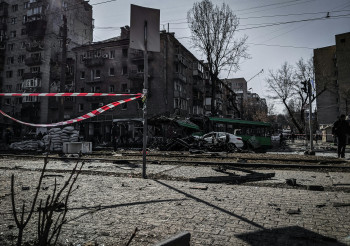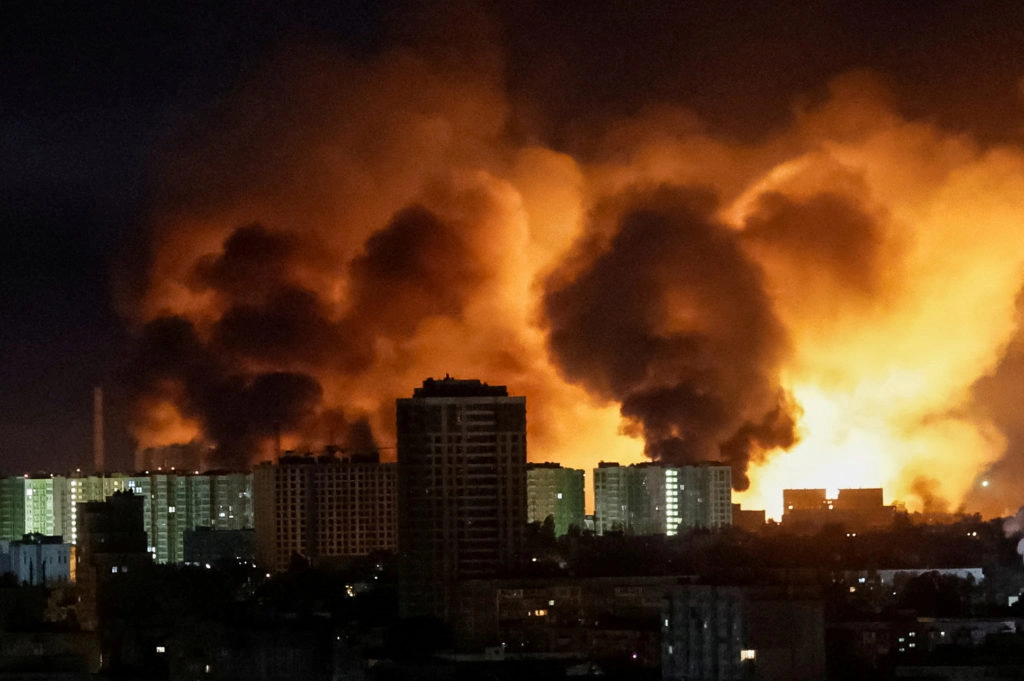What happens when a conflict escalates to unprecedented levels? How does the largest drone and missile attack since the beginning of the war impact Ukraine's defenses? Why is Russia intensifying its assaults now? These questions loom large as Ukraine reports the most massive aerial bombardment since the war began, marking a dangerous new phase in the ongoing conflict.
The Scale of the Attack: A New Benchmark in Warfare
According to Ukrainian officials, Russia launched over 150 drones and missiles in a single wave, targeting critical infrastructure, military installations, and urban centers. This attack surpasses all previous records in terms of volume and coordination, demonstrating Russia's evolving military strategy.
For context, earlier large-scale attacks typically involved 50-100 projectiles. The sudden escalation suggests either a stockpiling of resources or a strategic shift toward overwhelming Ukraine's air defenses through sheer numbers. Real-world parallels can be drawn to the Allied bombing campaigns in WWII, where mass aerial assaults aimed to cripple enemy infrastructure and morale.
Ukrainian air defenses reportedly intercepted many of the projectiles, but the scale ensured some would penetrate, causing significant damage in multiple regions. This raises urgent questions about the sustainability of Ukraine's defensive capabilities against such onslaughts.
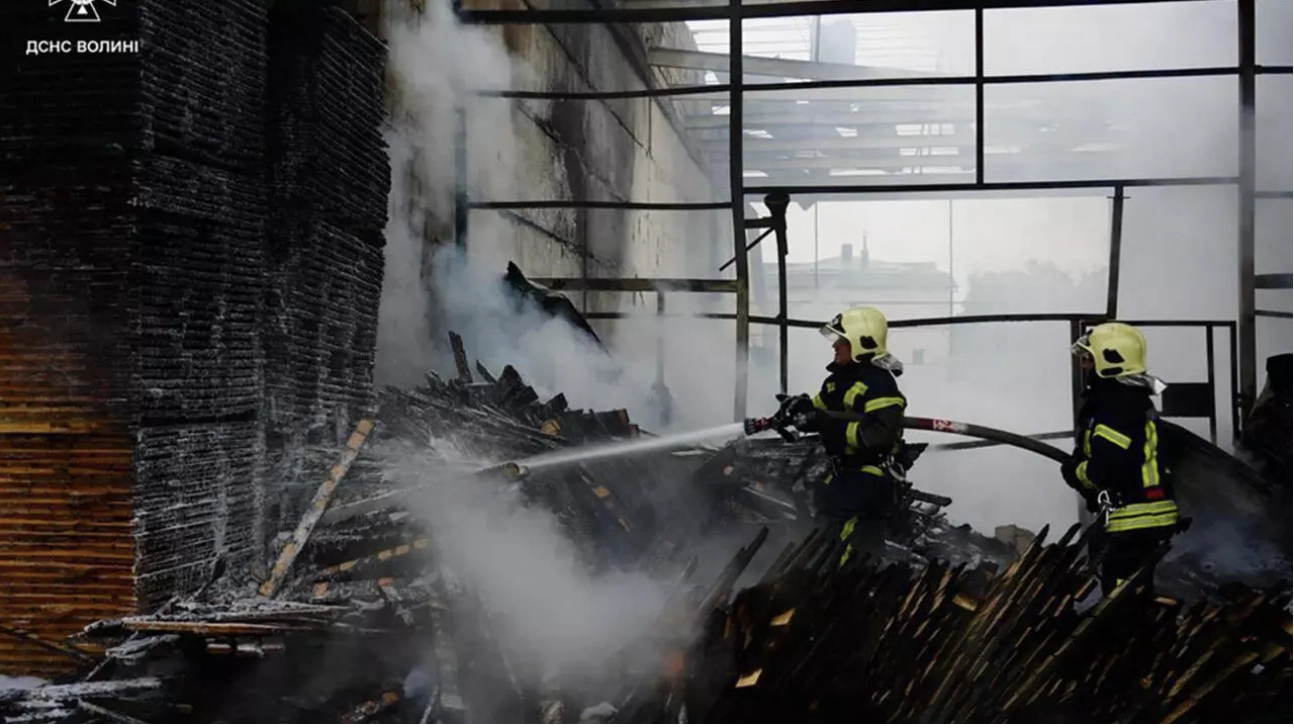
Targets and Tactics: Decoding Russia's Strategic Objectives
The attack focused on three primary target categories: energy infrastructure, military command centres, and residential areas. This multi-pronged approach appears designed to achieve several objectives simultaneously:
- Disrupt Ukraine's power grid to weaken civilian morale and industrial capacity
- Degrade military command and control systems
- Create psychological pressure through indiscriminate urban strikes
Historical precedents show that targeting civilian infrastructure often backfires by strengthening resistance. For example, Nazi Germany's Blitz on London during WWII failed to break British morale. However, modern precision weapons allow more systematic infrastructure targeting than WWII-era bombers could achieve.
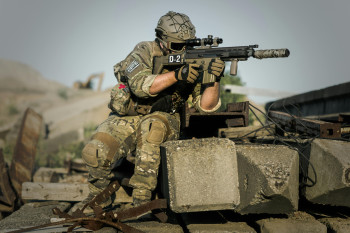
Technological Evolution: The Drone Warfare Dimension
This attack featured an unprecedented proportion of Iranian-made Shahed drones alongside cruise and ballistic missiles. The drone swarm tactic presents unique challenges:
- Drones are cheaper than missiles, allowing larger numbers
- They fly lower and slower, making detection harder for some systems
- Their small size requires different interception methods
Ukraine has developed effective countermeasures, including mobile drone-hunting teams with machine guns and electronic warfare systems. However, the sheer volume in this attack tested these defenses to their limits. The technological arms race in drone/counter-drone warfare mirrors developments seen in other conflicts, such as the Saudi interception of Houthi drones in Yemen.
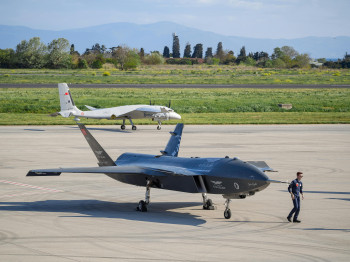
Human and Infrastructure Costs: The Ground Reality
While interception rates were high, the attacks still caused:
- Multiple civilian casualties across several cities
- Extended power outages affecting millions
- Damage to heating systems during winter
The psychological impact may prove as significant as the physical damage. Continuous aerial threats force civilians into shelters, disrupt economic activity, and strain emergency services. Similar patterns were observed during the "energy war" phase of winter 2022-2023, though at smaller scale.
Emergency crews worked around the clock to restore critical services, showcasing Ukraine's remarkable resilience. However, each repair draws resources away from other needs, creating a cumulative strain that could have long-term consequences.
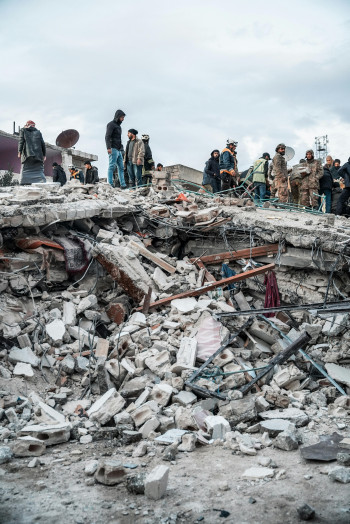
International Response and Future Implications
The attack prompted immediate reactions:
- NATO pledged additional air defence systems
- The EU accelerated discussions on frozen Russian asset transfers
- US officials warned of coming aid package announcements
Militarily, this attack may represent a Russian attempt to pre-empt Ukraine's expected spring offensive by degrading its capabilities. Alternatively, it could signal a new phase of intensified bombardment aimed at breaking Ukrainian resistance before Western aid arrives in quantity.
The international community faces difficult questions about escalation thresholds and response options. Each major attack narrows the path to negotiated settlement while increasing pressure for more direct Western involvement.
Conclusion: A Turning Point in the Conflict?
This unprecedented attack marks several worrying developments:
- The quantitative escalation in strike volume
- The qualitative evolution of combined drone-missile tactics
- The apparent willingness to sustain such intensive operations
While Ukraine's defenses performed admirably against overwhelming odds, the attack underscores the urgent need for enhanced air defense systems and the challenges of defending against mass drone swarms. As the war approaches its third year, this event may be remembered as either a temporary peak or the beginning of an even more destructive phase.
